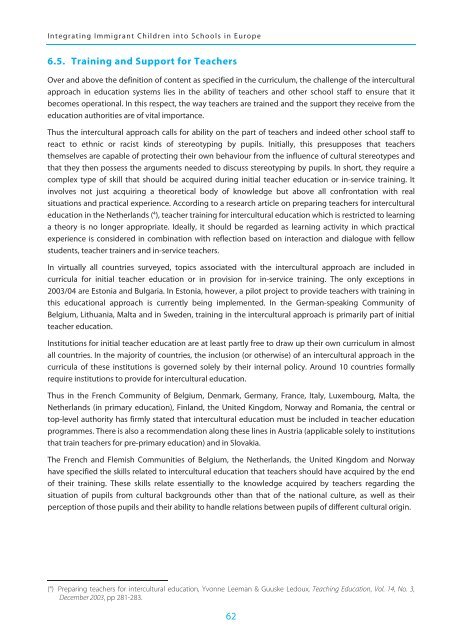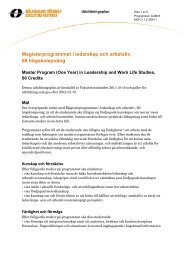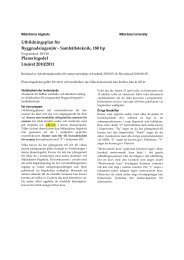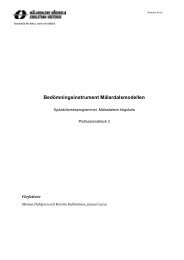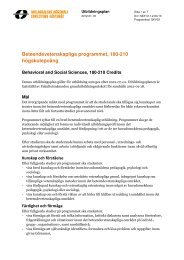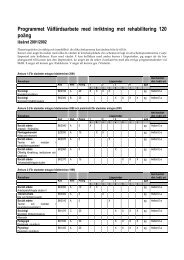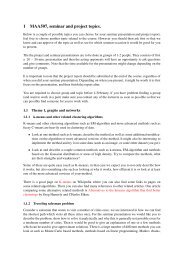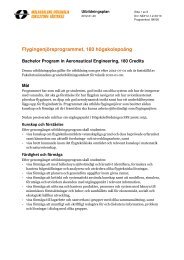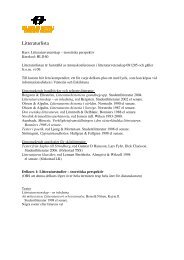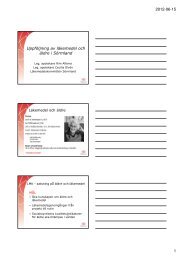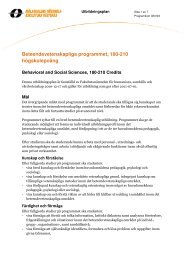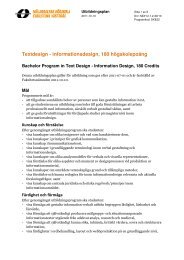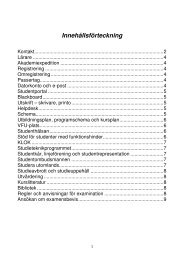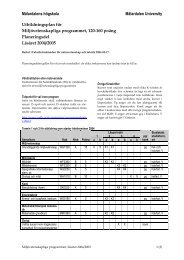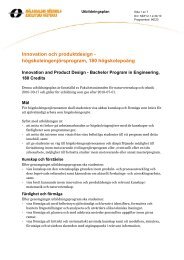Integrating Immigrant Children into Schools in Europe
Integrating Immigrant Children into Schools in Europe
Integrating Immigrant Children into Schools in Europe
Create successful ePaper yourself
Turn your PDF publications into a flip-book with our unique Google optimized e-Paper software.
<strong>Integrat<strong>in</strong>g</strong> <strong>Immigrant</strong> <strong>Children</strong> <strong><strong>in</strong>to</strong> <strong>Schools</strong> <strong>in</strong> <strong>Europe</strong>6.5. Tra<strong>in</strong><strong>in</strong>g and Support for TeachersOver and above the def<strong>in</strong>ition of content as specified <strong>in</strong> the curriculum, the challenge of the <strong>in</strong>terculturalapproach <strong>in</strong> education systems lies <strong>in</strong> the ability of teachers and other school staff to ensure that itbecomes operational. In this respect, the way teachers are tra<strong>in</strong>ed and the support they receive from theeducation authorities are of vital importance.Thus the <strong>in</strong>tercultural approach calls for ability on the part of teachers and <strong>in</strong>deed other school staff toreact to ethnic or racist k<strong>in</strong>ds of stereotyp<strong>in</strong>g by pupils. Initially, this presupposes that teachersthemselves are capable of protect<strong>in</strong>g their own behaviour from the <strong>in</strong>fluence of cultural stereotypes andthat they then possess the arguments needed to discuss stereotyp<strong>in</strong>g by pupils. In short, they require acomplex type of skill that should be acquired dur<strong>in</strong>g <strong>in</strong>itial teacher education or <strong>in</strong>-service tra<strong>in</strong><strong>in</strong>g. It<strong>in</strong>volves not just acquir<strong>in</strong>g a theoretical body of knowledge but above all confrontation with realsituations and practical experience. Accord<strong>in</strong>g to a research article on prepar<strong>in</strong>g teachers for <strong>in</strong>terculturaleducation <strong>in</strong> the Netherlands ( 4 ), teacher tra<strong>in</strong><strong>in</strong>g for <strong>in</strong>tercultural education which is restricted to learn<strong>in</strong>ga theory is no longer appropriate. Ideally, it should be regarded as learn<strong>in</strong>g activity <strong>in</strong> which practicalexperience is considered <strong>in</strong> comb<strong>in</strong>ation with reflection based on <strong>in</strong>teraction and dialogue with fellowstudents, teacher tra<strong>in</strong>ers and <strong>in</strong>-service teachers.In virtually all countries surveyed, topics associated with the <strong>in</strong>tercultural approach are <strong>in</strong>cluded <strong>in</strong>curricula for <strong>in</strong>itial teacher education or <strong>in</strong> provision for <strong>in</strong>-service tra<strong>in</strong><strong>in</strong>g. The only exceptions <strong>in</strong>2003/04 are Estonia and Bulgaria. In Estonia, however, a pilot project to provide teachers with tra<strong>in</strong><strong>in</strong>g <strong>in</strong>this educational approach is currently be<strong>in</strong>g implemented. In the German-speak<strong>in</strong>g Community ofBelgium, Lithuania, Malta and <strong>in</strong> Sweden, tra<strong>in</strong><strong>in</strong>g <strong>in</strong> the <strong>in</strong>tercultural approach is primarily part of <strong>in</strong>itialteacher education.Institutions for <strong>in</strong>itial teacher education are at least partly free to draw up their own curriculum <strong>in</strong> almostall countries. In the majority of countries, the <strong>in</strong>clusion (or otherwise) of an <strong>in</strong>tercultural approach <strong>in</strong> thecurricula of these <strong>in</strong>stitutions is governed solely by their <strong>in</strong>ternal policy. Around 10 countries formallyrequire <strong>in</strong>stitutions to provide for <strong>in</strong>tercultural education.Thus <strong>in</strong> the French Community of Belgium, Denmark, Germany, France, Italy, Luxembourg, Malta, theNetherlands (<strong>in</strong> primary education), F<strong>in</strong>land, the United K<strong>in</strong>gdom, Norway and Romania, the central ortop-level authority has firmly stated that <strong>in</strong>tercultural education must be <strong>in</strong>cluded <strong>in</strong> teacher educationprogrammes. There is also a recommendation along these l<strong>in</strong>es <strong>in</strong> Austria (applicable solely to <strong>in</strong>stitutionsthat tra<strong>in</strong> teachers for pre-primary education) and <strong>in</strong> Slovakia.The French and Flemish Communities of Belgium, the Netherlands, the United K<strong>in</strong>gdom and Norwayhave specified the skills related to <strong>in</strong>tercultural education that teachers should have acquired by the endof their tra<strong>in</strong><strong>in</strong>g. These skills relate essentially to the knowledge acquired by teachers regard<strong>in</strong>g thesituation of pupils from cultural backgrounds other than that of the national culture, as well as theirperception of those pupils and their ability to handle relations between pupils of different cultural orig<strong>in</strong>.( 4 ) Prepar<strong>in</strong>g teachers for <strong>in</strong>tercultural education, Yvonne Leeman & Guuske Ledoux, Teach<strong>in</strong>g Education, Vol. 14, No. 3,December 2003, pp 281-283.62


